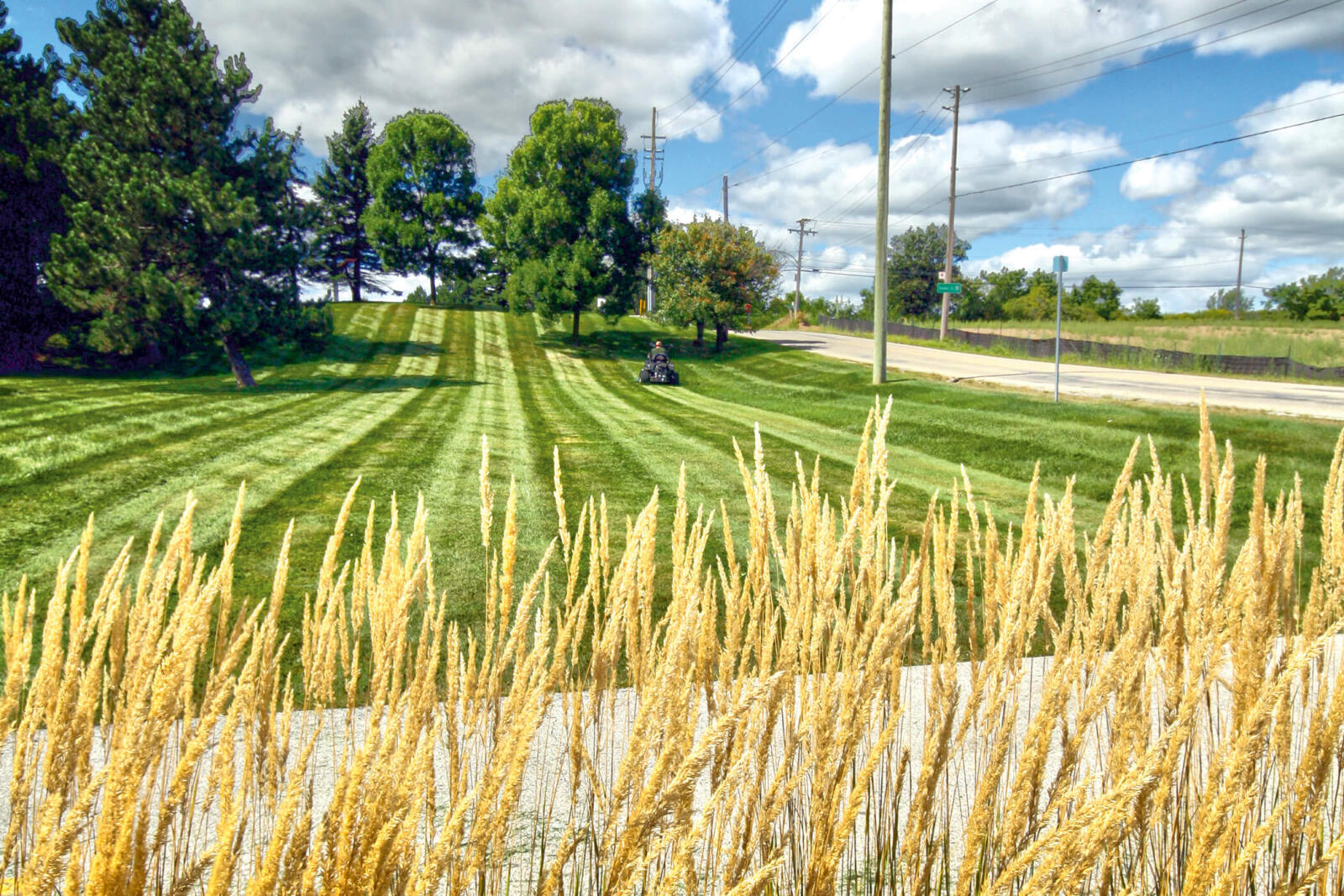March 15, 2016

Since the controversial cosmetic pesticide ban came into effect in 2009, members of the lawn care industry in Ontario have had to deal with increasing numbers of homeowners and competitors who skirt the law.
Lawn care by the book
Already up against the toughest pesticide regulations in the country, members of the turf care industry in Ontario are continually threatened by home owners and competitors who skirt the law by using banned products. To get a better sense of the issue, Landscape Ontario discussed some basic dos and don’ts with industry veterans John McIntosh of Enviro Masters and Gavin Dawson of GreenLawn.
“First of all, Par 3 must be locked in a compartment if it is unsupervised, so that it’s not accessible to the public,” Dawson says. “Par 3 contains class nine herbicides, and it is most commonly used on golf courses and municipal sports fields.”
“Blending pesticides with fertilizers would require registration under the Fertilizers Act,” Dawson says, noting that people do it because it saves them from “walking across the lawn more than once.”
McIntosh adds that “the law is clear and concise on what you can do, and it always comes down to following the label, which is a legal document.”
“The supervision must include written instructions and records need to be kept for a specified number of days,” McIntosh adds.
Landscape Ontario surveyed 51 lawn care professionals on the impact of the 2009 provincial pesticide ban. The results demonstrate that industry members are facing significant challenges as a result of the controversial legislation:
Can you use Roundup on any property?
You can only use Roundup “under specific exceptions under the pesticide regulations,” Dawson explains, and in a residential setting, exemptions are typically only for health and safety reasons. “Roundup is a trade name for a product that contains glyphosate, which is a banned class nine herbicide. You can use it, but only on specific weeds that are poisonous to touch, like poison ivy and giant hogweed.” There is also a public works exemption, Dawson adds.Can you use pesticide to spray a tree?
Yes, you can, Dawson says, but “if it contains a class nine pesticide, the treatment must comply with the requirements under the arboricultural exception.”What is a legal pesticide?
A legal pesticide is a product that is “within the framework of Health Canada and the Pest Management Regulatory Authority (PMRA),” McIntosh explains. “The pesticide must also have a pest control products (PCP) act number and be classified for use in Ontario.”If you see a bottle of Par 3 in the back of a pickup truck, is this illegal?
Spotting Par 3 in a residential area out in the open raises major red flags, both McIntosh and Dawson agree.“First of all, Par 3 must be locked in a compartment if it is unsupervised, so that it’s not accessible to the public,” Dawson says. “Par 3 contains class nine herbicides, and it is most commonly used on golf courses and municipal sports fields.”
What type of product can you use to control pests on a lawn?
You can only use “legal pesticides that are approved by the PMRA, have a PCP number on the label and are classified for use on turf grass,” McIntosh says. “Really, the only product that is available to us in Ontario is Fiesta; it’s a chelated iron product that provides approximately 60 per cent control on weeds.”Can you use fertilizer to control pests?
“The simple answer is no,” Dawson says. “However, there are fertilizers that are registered as pesticides, such as corn gluten meal. So I guess the answer is you can only use a fertilizer to control pests if it is registered as a pesticide. Fertilizer products that are not registered as pesticides cannot be formulated and used to control pests such as weeds and insects.”What product can you use to control pests on a lawn?
“That comes back to federally approved, Ontario classified products,” McIntosh says.Can you blend a fertilizer with a pesticide?
Despite the fact that it seems to happen a lot in the field, it is not a legal practice, McIntosh and Dawson agree.“Blending pesticides with fertilizers would require registration under the Fertilizers Act,” Dawson says, noting that people do it because it saves them from “walking across the lawn more than once.”
McIntosh adds that “the law is clear and concise on what you can do, and it always comes down to following the label, which is a legal document.”
Can a pesticide technician apply Roundup for poison ivy?
Yes, a registered technician can apply Roundup for poison ivy, as long as they are working under the direct supervision of a licensed exterminator, McIntosh and Dawson agree.“The supervision must include written instructions and records need to be kept for a specified number of days,” McIntosh adds.
Lawn care survey results
Landscape Ontario surveyed 51 lawn care professionals on the impact of the 2009 provincial pesticide ban. The results demonstrate that industry members are facing significant challenges as a result of the controversial legislation:
- 84 per cent of respondents say the value of their business has decreased since the ban, and the majority attributed the decline to the fact that legal products don’t work and home owners often seek out illegal pesticides in other jurisdictions.
- Nearly three quarters of those surveyed say their client base has contracted and that they have had to diversify their services since the ban.
- 77 per cent say their revenues have declined since 2009, some reporting losses as high as 90-100 per cent.
- Lastly, 86 per cent of survey participants said they would not advise someone to open a lawn care company in the current market conditions.